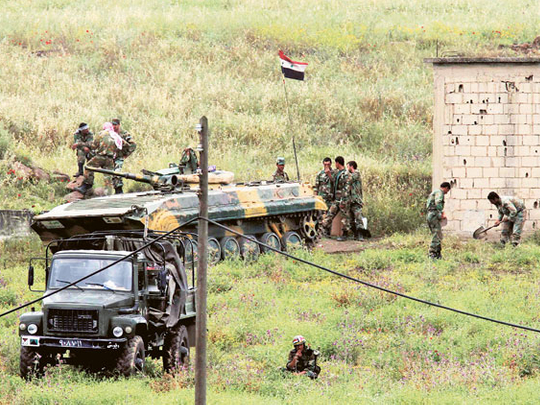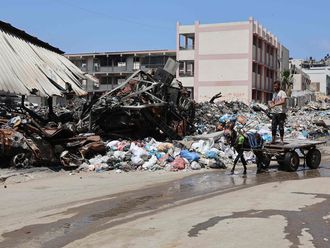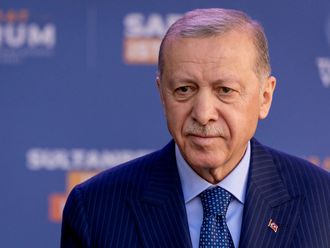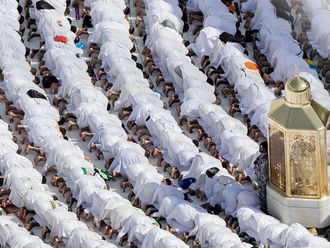
Beirut: Tucked into President Barack Obama's speech on Arab world policy on Thursday were indications of a subtle but important shift regarding the repressive rule of President Bashar Al Assad in Syria, a linchpin state in the Middle East that has long been considered a bulwark of stability.
For years, diplomats and scholars worried that the departure of the Al Assad clan would plunge Syria into the kind of civil strife that engulfed neighbouring Lebanon and Iraq or the former Yugoslavia. But increasingly they believe that the biggest factor in Syria's potential instability is the regime's attempts to exploit the nation's sectarian tensions, not the inherent divisions in the country.
"Divisions of tribe, ethnicity and religious sect were manipulated as a means of holding on to power, or taking it away from somebody else," Obama said of the region, words that could describe the tactics used by Al Assad as well as Yemen's Ali Abdullah Saleh and Libya's Muammar Gaddafi.
"But the events of the past six months show us that strategies of repression and strategies of diversion will not work anymore .... Societies held together by fear and repression may offer the illusion of stability for a time, but they are built upon fault lines that will eventually tear asunder."
New philosophy
After the uprisings this year in Tunisia and Egypt, the scenario of post-revolutionary Arab countries becoming echoes of Iraq or Iran is being increasingly dismissed. "Obama was really talking about a new foreign policy philosophy," said Ammar Abdul Hamid, a Syrian democracy activist in Washington.
"From an old pragmatism based on security to a new pragmatism based on managing the transition to democracy and erring on the side of the people."
Syria's record of supporting groups opposed to Israel, its alliance with Iran and its interference in Lebanon have earned it special scrutiny in Washington, but the secular Al Assad regime nonetheless was considered predictable and secure. "There was a long policy of the US supporting a regime no matter what for the sake of keeping stability, especially on the borders of Israel," said Riad Khawhaji of the Institute for Near East and Gulf Military Analysis, a think tank.
The mood appears to have shifted. "It is difficult to imagine any conceivable successor to Al Assad who would pursue more problematic or troublesome policies," said a report published on Thursday by the Washington Institute for Near East Policy and written by retired Israeli Maj. Gen. Amos Yadlin, a former intelligence chief, and Robert Satloff, the generally neo-conservative think tank's executive director.
"The president not only sanctioned Al Assad but articulated an issue, which is: Democratise or get out, beginning the clock ticking toward calling on Al Assad to leave," Satloff said.
"The idea that this regime in Syria is going to meet any reasonable standard of reform is unconceivable." In Syria, Sunnis, ethnic Kurds, the Druze and various Shiites and Christian sects make up a mosaic of 22 million people.












